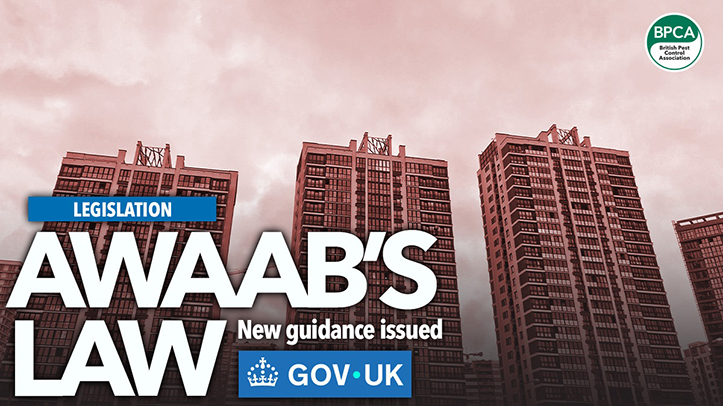The UK Government’s new Awaab’s Law came into force on Monday, October 27, 2025, introducing strict new timeframes for social landlords to fix emergency hazards and significant damp and mould problems in their properties.
The law, named after two-year-old Awaab Ishak, who tragically died from prolonged exposure to mould in his home, applies to all social landlords, including local authorities and housing associations.
While the current phase focuses on damp and mould, the government has confirmed that other significant hazards, including pest infestations, will be covered from October 2026.
The British Pest Control Association (BPCA) successfully lobbied for pest infestations to be included within the law.
Understanding landlord duties
Under the new regulations, social landlords must investigate and act on emergency hazards within 24 hours of becoming aware of them. If repairs can’t be completed in that time, the tenant must be offered alternative accommodation.
Examples of emergency hazards listed in the government guidance include gas or carbon monoxide leaks, broken boilers, total loss of water supply, structural defects and compromised home security.
Landlords must also investigate significant hazards, defined as anything that poses a risk to a tenant’s health or safety, within 10 working days, and complete any safety works within five working days of investigation.
Failure to meet these timeframes may result in enforcement action.
What it means for pest professionals
Although pest control issues are not yet included in phase one, BPCA is advising pest professionals who work with social landlords to familiarise themselves with the new requirements now.
Contractors will be expected to support landlords by:
- Supplying timely information for written summaries or reports;
- Reporting safeguarding or health and safety concerns noticed on site; and
- Keeping accurate records of any hazards observed while carrying out pest management work.
Some BPCA members have already reported being asked to complete hazard-impact questionnaires when visiting social housing properties.
The Association recommends maintaining thorough documentation and communicating proactively with landlords, as contractual obligations may begin as soon as a hazard is identified – not necessarily when it is reported.
Looking ahead
Phase two of Awaab’s Law, due in October 2026, will expand the list of significant hazards to include pest infestations and other risks.
Phase three, expected in October 2027, will extend similar protections to private rented sector tenants under the new Renters’ Rights Act, which received Royal Assent this week.
BPCA said pest professionals should stay alert to the evolving legislation and be ready to adapt their reporting and record-keeping processes to support landlord compliance and protect tenants’ health.


